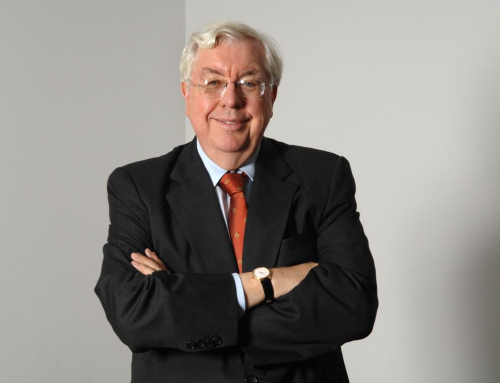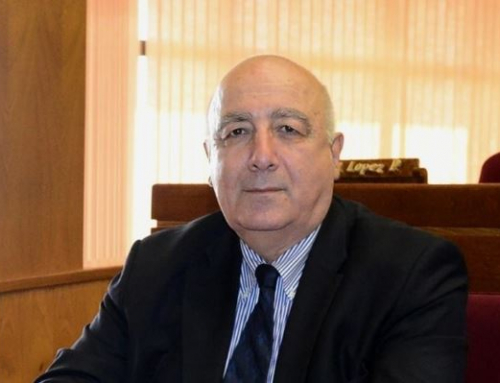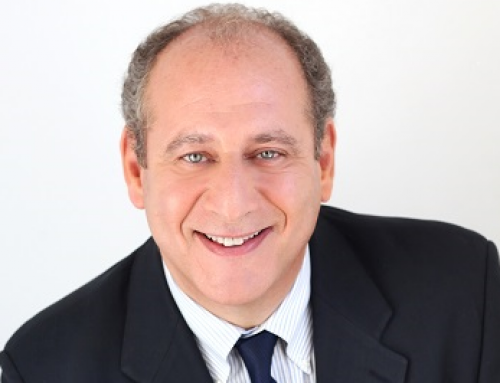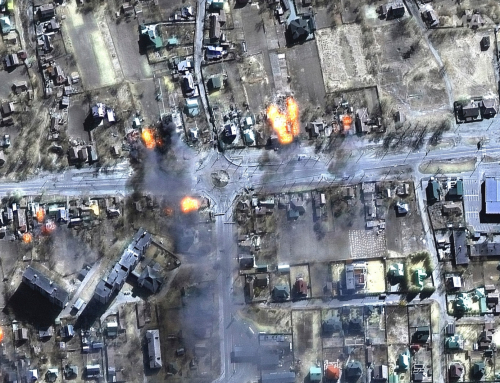It has been almost three weeks since Adjara senior police official physically abused a driver that had committed a violation. The small story was followed by big developments – local police officer destroyed one of the pieces of evidence proving the truth (a video footage). Another important issue was the ambiguous communication police had with the owner of the CCTV camera Sabir Nuriev and its location. What followed afterwards was an even bigger story of the Interior Ministry’s General Inspection, subsidized by taxpayers’ money, reacting with one-sided, subjective and partial findings.
These developments triggered broad discussions and rumors. Interior Ministry published several statements on its website, to which Georgian Young Lawyers’ Association (GYLA) responded with its own statements. As the driver that committed the violation is an employee of GYLA, the latter was informed about the details from the very beginning. Further, the incident happened in broad daylight and was captured on a nearby video surveillance camera.
It looked like an ordinary incident not worthy of special attention, as no serious criminal violations had been committed by the senior police official involved; however, acting on every single violation is particularly important now while we still have our hopes up. This is the time when the government that came into power six months ago is introducing new practices and setting precedents. Therefore, promoting the practice of making right decisions is important, especially when a violation has been committed in a broad daylight and captured on a surveillance camera. If the authorities fail to enforce the law in ordinary incidents like these, how can we expect them to handle more serious violations where lack of evidence and information may be an important challenge? Why can’t we fight boldly and fearlessly for our rights and for legally curbing powers of the police before Girgvliani, Robakidze and other young people pay for it with their own lives? Which is more reasonable – prevention or promotion of greater future threats?
Some have accused GYLA of being excessively involved in the issue, while to me there is only one answer to the question: “which is more acceptable – responding or ignoring a violation of rights?” Regardless of whose rights are violated – whether it is an employee of GYLA or not – the answer will remain be the same. In one of his interviews Gia Khukhashvili accused GYLA of being a contemporary Mkhedrioni running around with papers instead of guns. He stated that “the civil society, being the fourth government, has an obligation of tolerance.” I believe there is no need to further elaborate on the quotations above and therefore, I will only say this: discrediting the use of legal mechanisms by a civil society organization is no good, not to mention the new concept of an obligation to tolerate arbitrary actions of senior officials. What makes this even more alarming is that these ideas have been voiced by someone close to the Prime Minister, who is said to have a great influence today.
I refuse to believe that the prison footage from September 2012 has made us develop a thick skin and we are now indifferent to less intense forms of violence, turning a blind eye to violence committed by a senior police official in a broad daylight and for everyone to see. It’s still unclear for me the inadequate emphasis put on the fact that the driver was drunk (under a slight influence of alcohol, according to expert findings).
What often came to my mind while these developments were unfolding was the information solemnly released by the Interior Ministry about preparing the Code of Ethics for police officers. According to the Code, “while on duty a police officer is prohibited from smoking a cigarette, chewing a gum, talking on a cell-phone, talking from inside the vehicle, wearing sunglasses and looking not presentable while communicating with citizens.” At the same time, we witnessed a complete failure of the authorities to act when a senior police official violated not just the Code of Ethics but rights of an individual. We witnessed inadequate, one-sided and far-from-objective response of the system and biased actions of the Interior Ministry’s General Inspection. This is what the key issue of the story was. Therefore, not to shift the focus from the central theme, I have decided not to identify the senior police official from Adjara.
The authorities at the Interior Ministry had a chance to set a precedent and show what values they serve. Instead, what did we get as a result? What kind of example is the Interior Minister setting for his subordinate police officers by saying that the senior police official acted in defense of a policeman’s dignity and prestige? It also means that he approves of the General Inspection’s biased actions. I believe these issues are worth pondering over. Furthermore, this is not the only infamous post-elections case that the system failed to adequately respond to. Based on this experience we must now decide what needs to be done and changed. Now is the time for the authorities and stakeholders to start thinking and acting for a comprehensive police reform to facilitate smooth enforcement of law, particularly in cases that involve police officers, whether senior officials or ordinary employees.
Even though it was an ordinary short story, it showcased once more the actual power of the parliament, its weaknesses and the role it plays in the existing system of separation of power. Current parliament will have trouble checking the executive branch due to the excessive caution that may even be qualified as self-censorship. Nevertheless, the story did teach us a negative but valuable lesson. The lesson learned is that weakness of state institutions lays more responsibility on us, the ordinary citizens and the civil sector. We must be actively involved in governance, be demanding with the authorities instead of being naïve, and most importantly, be supportive of each other. We must try to raise our voice in public field in a way that it is taken into account by those accountable before us.






Leave A Comment
You must be logged in to post a comment.